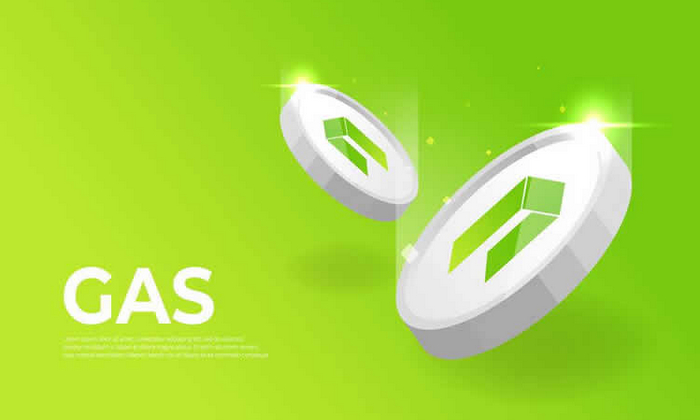-
 Bitcoin
Bitcoin $82,405.8054
1.80% -
 Ethereum
Ethereum $1,884.7519
-0.98% -
 Tether USDt
Tether USDt $0.9999
0.00% -
 XRP
XRP $2.1982
3.41% -
 BNB
BNB $554.7899
1.03% -
 Solana
Solana $126.4387
2.60% -
 USDC
USDC $0.9999
0.00% -
 Cardano
Cardano $0.7403
2.50% -
 Dogecoin
Dogecoin $0.1678
5.10% -
 TRON
TRON $0.2220
-2.29% -
 Pi
Pi $1.6540
20.48% -
 UNUS SED LEO
UNUS SED LEO $9.7102
-0.33% -
 Hedera
Hedera $0.2019
1.40% -
 Chainlink
Chainlink $13.2996
2.73% -
 Stellar
Stellar $0.2572
2.05% -
 Avalanche
Avalanche $18.4321
7.10% -
 Shiba Inu
Shiba Inu $0.0...01228
5.00% -
 Sui
Sui $2.2754
4.74% -
 Bitcoin Cash
Bitcoin Cash $344.3380
2.66% -
 Litecoin
Litecoin $90.3191
1.69% -
 Toncoin
Toncoin $2.6879
2.87% -
 MANTRA
MANTRA $6.4143
2.32% -
 Polkadot
Polkadot $3.9765
0.29% -
 Ethena USDe
Ethena USDe $0.9993
-0.04% -
 Dai
Dai $1.0000
0.00% -
 Bitget Token
Bitget Token $4.1926
1.76% -
 Hyperliquid
Hyperliquid $13.4399
-4.26% -
 Monero
Monero $206.7869
1.17% -
 Uniswap
Uniswap $5.9605
-0.44% -
 Aptos
Aptos $5.1119
-6.81%
How much is the highest price for Gas coins?
Network activity and platform adoption significantly influence gas coin prices, with higher transaction volume and increasing usage driving demand and subsequently their market value.
Nov 18, 2024 at 02:14 am

Understanding Gas Coins and Their Price Dynamics
Introduction
Gas coins, also known as transaction fees, are an integral part of blockchain operations. They incentivize network participants to validate and process transactions, ensuring network security and functionality. The demand and supply dynamics of gas coins influence their market value, which can fluctuate significantly based on factors such as network activity, platform adoption, and tokenomics.
Key Determinants of Gas Coin Prices
- Network Activity: The number of transactions processed on a blockchain platform directly impacts the demand for gas coins. Increased transaction volume leads to higher gas fees, as users compete to have their transactions processed promptly.
- Platform Adoption: The popularity and adoption of a blockchain platform can influence gas coin prices. As more users and applications join a platform, the demand for gas coins typically rises.
- Tokenomics: The supply and distribution mechanism of gas coins play a crucial role in determining their price. Factors such as token emission rate, distribution schedule, and burn mechanisms can impact the supply and demand dynamics.
Historical Highs for Gas Prices
The highest price for gas coins historically has fluctuated across different blockchain platforms. Here's a brief overview of notable price peaks:
- Ethereum (ETH): On May 12, 2021, the gas price on the Ethereum network reached a staggering 415 gwei, equivalent to approximately $82 per transaction.
- Binance Smart Chain (BNB): On May 20, 2021, gas prices on the Binance Smart Chain surged to a peak of 240 gwei, roughly $0.60 per transaction.
- Solana (SOL): On September 9, 2021, the gas price on the Solana network hit an all-time high of 248 lamports per transaction, equivalent to around $0.01.
Factors Contributing to Historical Price Peaks
- Network Congestion: Sudden spikes in transaction volume, such as during token launches or popular NFT drops, can result in network congestion and drive up gas prices.
- Speculative Trading: Gas coins can also be subject to speculative trading, where individuals buy and sell gas tokens in anticipation of future price appreciation or potential outages.
- Network Upgrades: Pending or ongoing network upgrades can sometimes lead to uncertainty and increased transaction demand, pushing up gas fees temporarily.
Conclusion
Gas coins are essential components of blockchain ecosystems, enabling secure and reliable transaction processing. Their price dynamics are influenced by various factors, including network activity, platform adoption, tokenomics, and speculative trading. Understanding these factors is crucial for developers, users, and investors alike to navigate the complex and ever-evolving blockchain landscape.
Disclaimer:info@kdj.com
The information provided is not trading advice. kdj.com does not assume any responsibility for any investments made based on the information provided in this article. Cryptocurrencies are highly volatile and it is highly recommended that you invest with caution after thorough research!
If you believe that the content used on this website infringes your copyright, please contact us immediately (info@kdj.com) and we will delete it promptly.
- The price of Hyperliquid's native token dropped 8.5% on Wednesday morning as a whale liquidation event appeared to leave Hyperliquid's HLP (Hyperliquidity Provider) vault with a $4 million loss.
- 2025-03-12 22:05:50
- Bittensor (TAO), Solaxy (SOLX), and Mind of Pepe (MIND) Are the Best Crypto to Buy in March 2025
- 2025-03-12 22:05:50
- Hyperliquid (Hype) Crypto Trading Platform Is Under the Microscope for Multiple Hoog-Leverage Trades
- 2025-03-12 22:05:50
- Remittix Emerges as a Utility-Driven Project Targeting the $190 Trillion Cross-Border Payments Market
- 2025-03-12 22:05:50
- Y Combinator (YC) Backs Stablecoins
- 2025-03-12 22:05:50
- Best Uniswap (UNI) Wallet in 2025: Review of Uniswap's Native Non-Custodial Wallet
- 2025-03-12 22:05:50
Related knowledge

What is Ethereum’s Slashing mechanism and how to punish malicious behavior?
Feb 20,2025 at 03:08am
Key PointsOverview of slashingDifferent types of slashing in EthereumIncentives and consequences of slashingIdentifying and reporting slashed validatorsOngoing discussions and potential improvementsEthereum's Slashing Mechanism: Punishing Malicious BehaviorEthereum's slashing mechanism is an essential tool for ensuring network security and punishing mal...

What is the verifier node of Ethereum and how to become a verifier?
Feb 19,2025 at 06:00pm
The Verifier Node of Ethereum: A Comprehensive GuideKey Points:What is a Verifier Node?How to Become a Verifier NodeResponsibilities and Rewards of a Verifier NodeMinimum Requirements for Becoming a Verifier NodePotential Difficulties in Running a Verifier Node1. What is a Verifier Node?A Verifier Node is an independent entity on the Ethereum network th...

What is Ethereum’s staking, and how to participate and earn money?
Feb 19,2025 at 04:37pm
Key Points:Understanding Ethereum's Staking MechanismSteps to Participate in StakingBenefits and Rewards of StakingSecurity and Risk ConsiderationsTechnical Requirements and Hardware OptionsPotential Challenges and Troubleshooting TipsFAQs on Ethereum StakingWhat is Ethereum's Staking?Proof-of-Stake (PoS) is a consensus mechanism used in blockchain netw...

What is Ethereum’s DAO (Decentralized Autonomous Organization) and how does it work?
Feb 20,2025 at 03:12am
Key PointsDefinition and Structure of a DAOGovernance and Decision-Making in DAOsBenefits and Use Cases of DAOsChallenges and Limitations of DAOsWhat is Ethereum's DAO (Decentralized Autonomous Organization) and How Does It Work?Definition and Structure of a DAOA Decentralized Autonomous Organization (DAO) is an innovative governance and management fram...

What is Ethereum's multi-signature wallet and how to improve security?
Feb 20,2025 at 02:18pm
Key Points:Understanding the Concept of a Multi-Signature WalletBenefits and Drawbacks of Multisig WalletsRequirements for Setting Up a Multisig WalletStep-by-Step Guide to Generating a Multisig WalletImplementing Strategies for Enhanced Security1. Understanding the Concept of a Multi-Signature WalletA multi-signature (multisig) wallet in the Ethereum e...

What is Ethereum's oracle and how to provide data for smart contracts?
Feb 21,2025 at 01:30am
Key Points:Understanding the concept of oracles in EthereumExploring different types of oraclesDetailed guide on how to provide data for smart contractsAddressing potential challenges and considerationsWhat is Ethereum's Oracle?Oracles are crucial components in the Ethereum ecosystem, enabling smart contracts to access real-world data and off-chain even...

What is Ethereum’s Slashing mechanism and how to punish malicious behavior?
Feb 20,2025 at 03:08am
Key PointsOverview of slashingDifferent types of slashing in EthereumIncentives and consequences of slashingIdentifying and reporting slashed validatorsOngoing discussions and potential improvementsEthereum's Slashing Mechanism: Punishing Malicious BehaviorEthereum's slashing mechanism is an essential tool for ensuring network security and punishing mal...

What is the verifier node of Ethereum and how to become a verifier?
Feb 19,2025 at 06:00pm
The Verifier Node of Ethereum: A Comprehensive GuideKey Points:What is a Verifier Node?How to Become a Verifier NodeResponsibilities and Rewards of a Verifier NodeMinimum Requirements for Becoming a Verifier NodePotential Difficulties in Running a Verifier Node1. What is a Verifier Node?A Verifier Node is an independent entity on the Ethereum network th...

What is Ethereum’s staking, and how to participate and earn money?
Feb 19,2025 at 04:37pm
Key Points:Understanding Ethereum's Staking MechanismSteps to Participate in StakingBenefits and Rewards of StakingSecurity and Risk ConsiderationsTechnical Requirements and Hardware OptionsPotential Challenges and Troubleshooting TipsFAQs on Ethereum StakingWhat is Ethereum's Staking?Proof-of-Stake (PoS) is a consensus mechanism used in blockchain netw...

What is Ethereum’s DAO (Decentralized Autonomous Organization) and how does it work?
Feb 20,2025 at 03:12am
Key PointsDefinition and Structure of a DAOGovernance and Decision-Making in DAOsBenefits and Use Cases of DAOsChallenges and Limitations of DAOsWhat is Ethereum's DAO (Decentralized Autonomous Organization) and How Does It Work?Definition and Structure of a DAOA Decentralized Autonomous Organization (DAO) is an innovative governance and management fram...

What is Ethereum's multi-signature wallet and how to improve security?
Feb 20,2025 at 02:18pm
Key Points:Understanding the Concept of a Multi-Signature WalletBenefits and Drawbacks of Multisig WalletsRequirements for Setting Up a Multisig WalletStep-by-Step Guide to Generating a Multisig WalletImplementing Strategies for Enhanced Security1. Understanding the Concept of a Multi-Signature WalletA multi-signature (multisig) wallet in the Ethereum e...

What is Ethereum's oracle and how to provide data for smart contracts?
Feb 21,2025 at 01:30am
Key Points:Understanding the concept of oracles in EthereumExploring different types of oraclesDetailed guide on how to provide data for smart contractsAddressing potential challenges and considerationsWhat is Ethereum's Oracle?Oracles are crucial components in the Ethereum ecosystem, enabling smart contracts to access real-world data and off-chain even...
See all articles

















































































